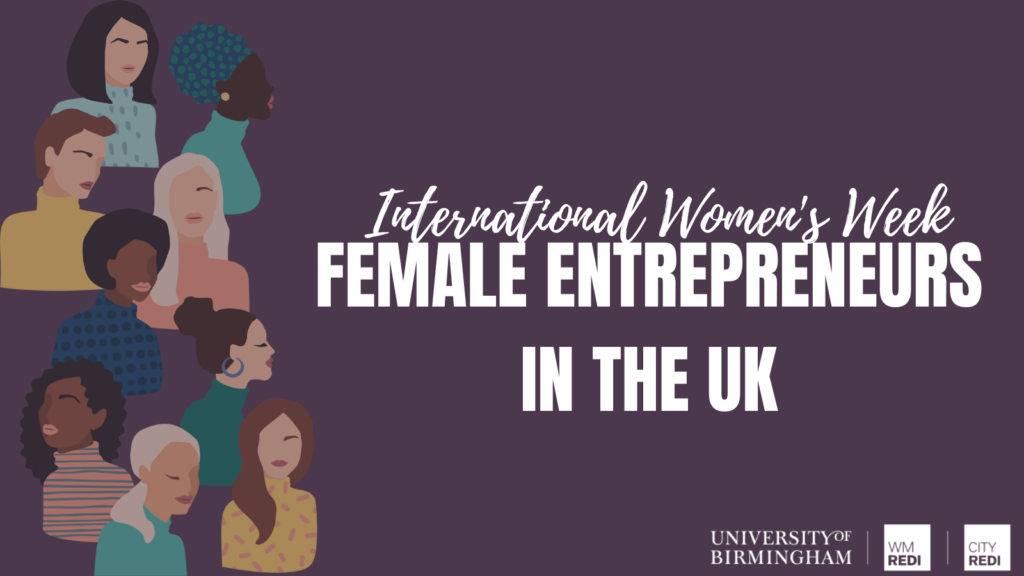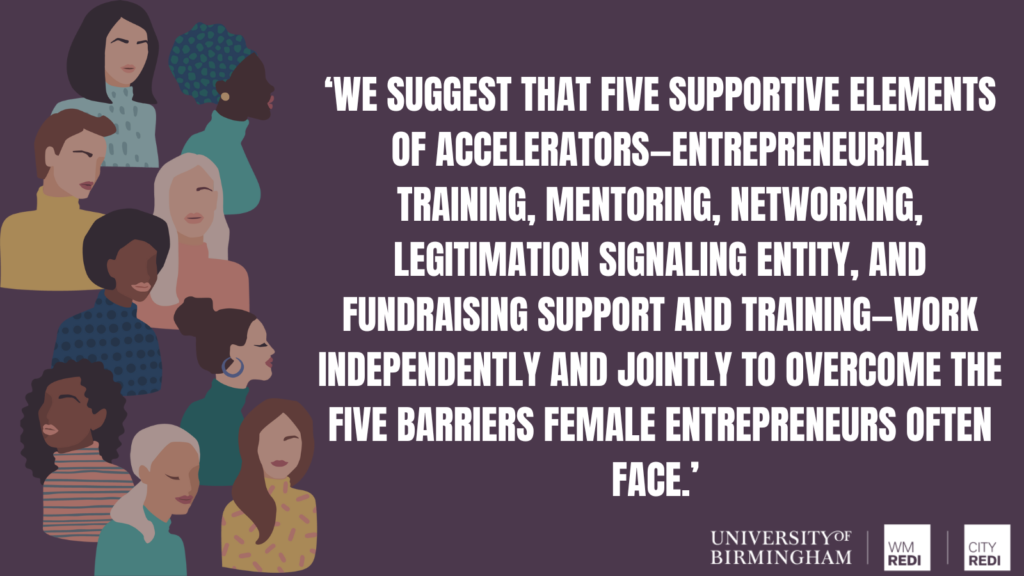
In celebration of International Women's Day, Juliane Schwarz looks at how females in the UK are represented in business as entrepreneurs. This blog is part of an International Women's Day series.
Females account for one in three entrepreneurs in the UK.
The Female Founder Forum describes in One in a Million that similar economies such as Spain, the US and the Netherlands have greater balance in the number of female and male entrepreneurs and in Switzerland, almost half (47%), of entrepreneurs, are female. Under-representation of female entrepreneurs is particularly evident in high-growth sectors such as high-tech, finance and ICT.
How do start-up accelerators benefit female entrepreneurship?
The impact of start-up accelerators on female entrepreneurship can be significant. A recent study in Israel suggests that accelerators are particularly useful for overcoming barriers more prevalent among female founders:

They conclude that accelerators can increase the number of female entrepreneurs and thus should be supported by effective policy.
Five barriers to female entrepreneurship and how these are addressed in business start-up accelerators
- Entrepreneurial knowledge and skills are vital for start-up creation, growth and. Although the general education level and work experience of female and male founders are often similar, female founders seem to lag in domain-specific knowledge and skills. They are less likely to have studied business, finance or STEM fields, and have less business and managerial work experience. Accelerators are time-limited (3-9 months) ‘boot camps’ that address the knowledge imbalance of founders which can drain a venture of scarce resources and potentially put the whole business at risk of failure.
- Business networks are essential for start-ups to access knowledge, customers, suppliers, partners and, most importantly, investors. Both male and female founders have to build and constantly increase their professional networks. Research suggests that women are less successful in utilising their social networks in male-dominated environments and industries. The reason for this is not conclusive, see Poggesi (2020). Accelerators help founders to build and extend their formal and informal networks by co-locating founders during the duration of the programme and connecting them with various networks of experts, professions and businesses.
- Entrepreneurial identity and regarding entrepreneurship as a valid and valuable option needs to be developed and strengthened. Founders need confidence in their ability to succeed in, and with, their ventures. This is critical during the initial process of business formation but also in relation to growth. Research indicates that a lack of confidence in their capabilities to start a business prevents women from becoming entrepreneurs in the first place and results in lower entrepreneurial outcomes. In business accelerators, founders are co-located with other founders. They are exposed, sometimes for the first time, to peers with similar outlooks, drive and purpose. Confidence is established by individuals understanding entrepreneurial drive positively, that they are taken seriously by their peers, their tutors and established business owners.
- The legitimacy of a new venture is particularly important in relation to resource providers. Suppliers, buyers, regulatory agencies, resource providers, etc. need to trust in the viability of a new venture. Stereotypes and ideas about entrepreneurship being a masculine domain create barriers for female entrepreneurs. Having the strong support of a reputable organisation, being accepted onto an accelerator after an intensive selection process and being provided with mentors and champions signal legitimacy within the entrepreneurial ecosystem.
- Access to finance affects the survival and growth of a new venture as it allows space to experiment, explore opportunities and connect with potential customers. Both venture capitalists and angel investors invest less in female-led than in male-led business ventures. The lack of access to capital is seen as the main barrier to female entrepreneurship. Accelerators focus on fundraising skills (e.g., pitching), founders get feedback on their investment readiness level and are connected with potential investors. Participating founders are often given the opportunity to pitch to investors on their graduation day.

Why is it a problem when females lag behind in entrepreneurship?
The Global Entrepreneurship Monitor 2020/2021 observes that inclusiveness in entrepreneurship is crucial to reap the benefits that new businesses bring to the economy and society (employment, innovation, income, new products and services). To place an economic value on this, the Alison Rose Review of Female Entrepreneurship notes that the UK economy misses out on 1.1 million new businesses and £250 billion of new value-added that could be realized if women start and scale new businesses at the same rate as men in the UK. Thus, supporting female entrepreneurship is an important step forward not only for the equality, diversity and inclusion agenda, but also to make the UK economy stronger and more competitive internationally.
This blog was written by Dr Juliane Schwarz, Research Fellow, City-REDI, University of Birmingham.
Disclaimer:
The views expressed in this analysis post are those of the authors and not necessarily those of City-REDI or the University of Birmingham.
To sign up for our blog mailing list, please click here.
